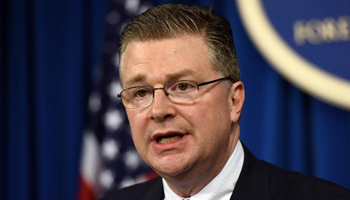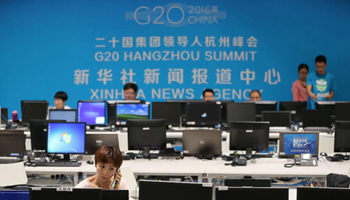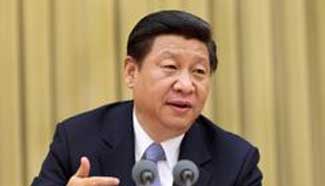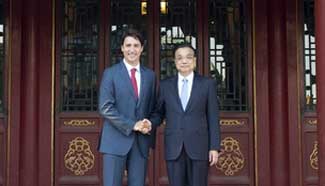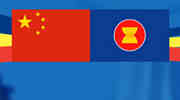BRASILIA, Aug. 31 (Xinhua) -- As Brazil and Latin America reeled from the impeachment of Brazil's president Dilma Rousseff on Wednesday, reactions quickly began pouring in, mostly from her saddened supporters.
Brazil's Central Union of Workers (CUT), a stalwart Rousseff ally behind many of the protests in her favour, was indignant. In a statement, it said Dilma had faced "a coup" and predicted that unions and workers' associations would unite against any attempt to "strip them of their rights."
"This is not a simple change of mandate but the usurpation of Brazil's destiny by a wing of the political class, the judiciary and the press that desire power at any cost," said CUT President Vagner Freitas.
Taking the opposing line, the National Confederation of Agriculture (CUA) hailed the impeachment as "a victory for the nation." The CUA, which represents many private land-owners, said its members had been impressed with "Temer being fair in relation with other powers and with society. He transmits the hope that the country's economic crisis can be overcome."
Internationally, left-wing governments in the region were quick to blast what they saw as a coup.
The government of Ecuador released a statement, in which it condemned "the political events in Brazil...which have deposed from her position the constitutional President Dilma Rousseff."
Quito rejected "the flagrant subversion of the democratic order in Brazil, which can be considered an underhanded coup d'etat."
Venezuela followed suit, with its government writing that "the political and corporate oligarchies, in alliance with imperial forces, led the coup against President Dilma Rousseff, through anti-juridicial trickery. They have reached power in the only way possible: fraud and immorality."
On Tuesday, Bolivia's President Evo Morales wrote on Twitter that he would recall his country's ambassador to Brazil if Rousseff was impeached. On Wednesday, Morales confirmed that the ambassador, Jose Kinn, was being called to La Paz for "consultations" although there was no word if this was a permanent move.
In a statement, Morales condemned this decision by the Brazilian Senate "which ignores the will of the people expressed in the popular vote. This harms democracy in a brother country like Brazil and ignores the 54 million votes which took Dilma Rousseff to the presidency."
Cuba also condemned the impeachment, writing that "the Revolutionary Government of the Republic of Cuba strongly rejects the parliamentary coup that has been accomplished against President Dilma Rousseff," in an official release sent to local media.
In Argentina, the government of President Mauricio Macri issued a statement to say it "respected the verified institutional process" in Brazil and expressed its desire to work with the Brazilian government on issues of common concern, such as Southern Common Market (Mercosur) integration.
However, Macri's predecessor Cristina Fernandez de Kirchner threw her support behind her fallen friend, writing on Twitter that "Latin America is once again a laboratory for the most extreme right."


